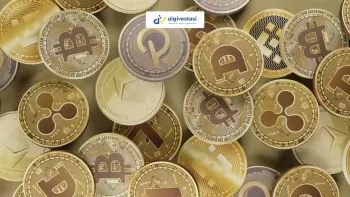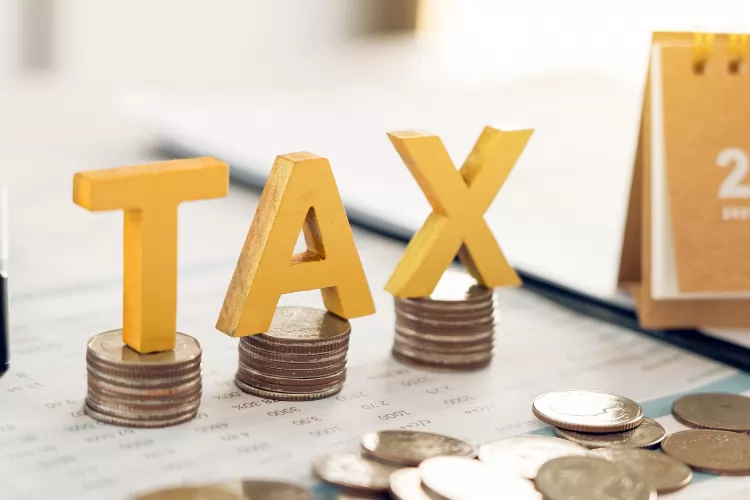
Crypto News
Deutsche Bank Set to Become Banking Partner for Bullish - The Crypto Exchange Listed on NYSE!
/index.php
Crypto News - Posted on 30 July 2025 Reading time 5 minutes

Government Revamps Crypto Tax Scheme: VAT Abolished, Final Income Tax Raised to 0.21 Percent
The Indonesian government has officially enacted a new tax structure for crypto asset transactions starting August 1, 2025, through the issuance of Ministry of Finance Regulation (PMK) Number 50 of 2025. This new regulation eliminates the Value Added Tax (VAT) on the sale of crypto assets and sets the final Income Tax (PPh) under Article 22 at 0.21%, up from the previous rate range of 0.1% to 0.2%.
Crypto Assets Classified as Financial Instruments
According to the annex of PMK 50/2025, the government classifies crypto assets as securities, putting them on par with stocks and bonds. As a result, crypto sales are no longer subject to VAT, similar to the tax-free nature of securities transactions.
However, services related to crypto transactions—including exchange services, swaps, digital wallets, deposits, withdrawals, and mining verifications—remain subject to VAT. The effective tax rates vary, ranging from 11% for Electronic System Trading (PMSE) services to approximately 2.2% for mining verification services, based on a DPP calculation scheme of 11/12 from the 12% base rate.
Final Income Tax Increase: From 0.1% to 0.21%
The new final income tax rate of 0.21% applies to all crypto asset transactions conducted via domestic platforms. This replaces the previous rules under PMK 81/2024 and PMK 68/2022, which set a 0.1% tax rate for regulated platforms and 0.2% for unregistered platforms.
The collection, remittance, and reporting of this tax are now the responsibility of Electronic System Trading Providers (PPMSE). For transactions through foreign platforms, the government imposes a final income tax rate of 1%, with no creditable tax facilities available domestically.
Tax Adjustments for Crypto Mining Activities
The new regulation also addresses crypto mining activities. VAT on mining verification services has increased from around 1.1% to 2.2%. Moreover, income from mining activities—which was previously subject to a final income tax rate of 0.1%—will, starting from the 2026 fiscal year, follow the general income tax rules under the Income Tax Law. This means rates could be higher and will follow the progressive tax brackets.
Regulatory Shift: From Commodity to Financial Instrument
Since the issuance of PMK 68/2022, crypto assets in Indonesia have been subject to VAT due to their classification as digital commodities. Now, under PMK 50/2025, crypto assets are legally reclassified as financial instruments, aligning with the supervisory transition from Bappebti to the Financial Services Authority (OJK). This change reflects the evolving regulatory landscape in line with the development of the domestic crypto ecosystem.
The shift in tax structure was first signaled by fiscal authorities in July 2025, but it was only legally formalized through the PMK, which takes effect in August 2025. This aims to ensure legal certainty and administrative ease for market participants.
Implications: Between Simplification and Fiscal Pressure
With the removal of VAT on crypto sales, buyers or retail investors are no longer burdened by consumption taxes, resembling the stock trading mechanism. However, service providers such as trading platforms, digital wallets, and swap service providers remain VAT-liable, thus continuing to contribute to state revenue from the digital sector.
On the other hand, crypto sellers and miners face higher income tax rates, creating the potential for increased fiscal revenue, even though the main VAT levy has been lifted.
Conclusion: A New Era of Crypto Taxation Begins
Through PMK 50/2025, the government has fundamentally revised the crypto asset taxation framework in Indonesia:
VAT on crypto sales is eliminated as of August 1, 2025, due to the reclassification of digital assets as financial instruments.
The final income tax rate on transactions is increased to 0.21%, double the previous rate.
VAT on related services—including platforms and miners—remains in effect, with effective rates of around 11% and 2.2%, respectively.
Starting in the 2026 tax year, crypto miners will be subject to general income tax provisions, moving away from the final tax scheme.
For players in the crypto industry, this change establishes a more structured tax regime aligned with conventional financial regulations. While administrative processes become simpler, the fiscal burden remains significant for service providers and users within the digital asset ecosystem.
What do you think about this topic? Tell us what you think. Don't forget to follow Digivestasi's Instagram, TikTok, Youtube accounts to keep you updated with the latest information about economics, finance, digital technology and digital asset investment.
DISCLAIMER
All information contained on our website is summarized from reliable sources and published in good faith and for the purpose of providing general information only. Any action taken by readers on information from this site is their own responsibility.